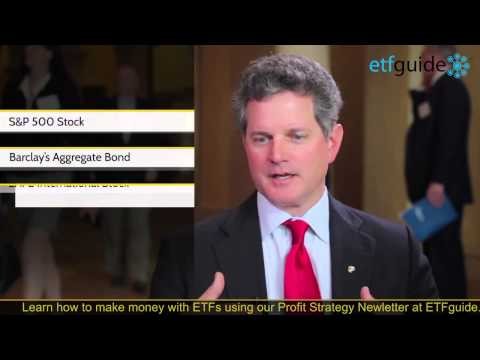Will 2014 Be The Tipping Point For Active ETFs_3
Post on: 16 Март, 2015 No Comment

PIMCO’s Outlook: Canadian Economy Nears a Tipping Point
- Given the bimodal nature of the expected distribution of outcomes, it is important for investors to remain nimble so they can respond to high frequency data and global public policy developments.
- We expect the Bank of Canada to remain in wait-and-see mode until it is clear which way the economy is tipping.
- In our base case scenario, we estimate Canadian bond market returns in the range of 2%-4%, and if we tip into a virtuous cycle of economic recovery, we anticipate the possibility of negative absolute returns.
Article Main Body
Over the next year, PIMCO expects that economic growth in Canada will slow to around 1% after inflation. According to Ed Devlin, PIMCO’s head of Canadian portfolio management, slower U.S. growth and the sovereign debt crisis in Europe may dampen demand for Canadian goods overseas and hurt business confidence at home; in addition, Canadian consumers, suffering from debt fatigue, are likely to reduce spending. Below, Devlin offers more insights into PIMCO’s outlook for Canada.
Q: What are the main risks to PIMCO’s economic forecast for Canada?
Devlin: In this highly uncertain environment, we believe that investing requires not just a baseline forecast, but also a stochastic analysis of tail outcomes – we have to be flexible and forward-looking to various possible outcomes. We believe that the Canadian economy is at a tipping point in 2012. While our baseline forecast is for sluggish growth, the distribution of outcomes is actually bimodal: Canada could easily tip into either a recession or a robust recovery (see graph). Typically, it is rare for economies to muddle through with sub-trend economic growth. Given the major issues the world needs to resolve in 2012, we believe it is likely that the Canadian economy will enter into either a virtuous cycle of economic recovery or a vicious cycle of economic decline.
A virtuous cycle could happen if the U.S. can generate moderate growth, avoiding a double-dip recession, and Europe is able to remove the spectre of default by a systemically important country or financial institution. This should cause an improvement in animal spirits in Canada – leading to a general rise in business and consumer confidence – which would likely promote business investment, employment and consumption. This should also increase demand for Canadian goods abroad, leading to export-driven economic growth.
Conversely, if Europe lets a systemically important country or bank fail and/or if the U.S. falls into recession, then we could see a severe impairment of Canadian animal spirits, likely leading to a decline in business investment, employment, consumption, and net exports and inevitably to economic recession or worse.
Given the bimodal nature of the expected distribution of outcomes, it is more important than ever for investors to remain nimble so they can respond to high frequency data and global public policy developments. In 2012, the case for active management of bond portfolios is compelling.

Q: Do you expect a housing crash?
Devlin: No. Our baseline forecast does not include a meaningful decline in national housing prices. Clearly, parts of the Canadian housing market are likely to significantly decline in price – the Vancouver and Toronto condo markets being the obvious flashpoints. As an investor, it is always tough to call the absolute peak or trough of a market, but when you see signs of excess, it is time to consider reducing your exposure to that market – full disclosure: I rent a Toronto condominium. That said, many homes in Canada are prudently financed with well underwritten mortgages.
To my earlier point, if Canada gets caught in a vicious cycle of economic decline, there is the potential for a meaningful decline in national home prices similar to, or worse than, that in 2008-2009 during the financial crisis.
Q: Is PIMCO concerned about inflation in Canada?
Devlin: Not really. Often you reap what you sow, and the Bank of Canada today is reaping the benefits of its hard-earned inflation fighting credentials. With our flexible exchange rate, the Canadian dollar tends to rise as economic conditions improve, acting as a natural shock absorber to pro-cyclical inflationary tendencies. Despite very loose monetary policy, the inflation rate implied in the inflation-linked bond market remains well contained at around 2.2%. While ultra-low interest rates in most developed countries may lead to another round of commodity price inflation, we believe this is unlikely to pass through to wage price inflation. We see the key core inflation rate in the 1.75%-2.0% range in 2012.
Q: What do you expect from the Bank of Canada?
Devlin: We expect no change in monetary policy in 2012. With the Canadian economy near a tipping point, the Bank of Canada faces a high bar to changing monetary policy. We expect the Bank of Canada to remain in wait-and-see mode until it is clear which way the economy is tipping. The bank does not want to pre-emptively hike rates and snuff out a fragile recovery. At the same time, it does not want to pre-emptively lower rates and potentially cause a housing or consumer debt bubble.
Many people would say that the bond market currently prices in a 20% chance of a 0.25% rate cut based on the overnight index swap rate, but we would disagree. We do not think the Bank of Canada will tweak monetary policy if it sees a mild slowdown in economic growth. Monetary policy is a blunt instrument, and with the overnight rate at 1%, it is already very accommodative. Instead, we view the current market as pricing in a 7% chance of a 0.75% rate cut. If the Bank of Canada sees the economy tipping into a vicious cycle of economic decline, we expect it will act decisively to bring rates down to the lowest feasible level, as it did in 2009. Otherwise, we expect that rates will stay at 1% and eventually move higher.
Q: The Canadian bond market was among the best performing bond markets in 2011. What is your forecast for 2012?
Devlin: The Dex Universe Bond Index returned 9.7% in 2011, and we anticipate that the bond market will likely not return anywhere close to that for many years to come. Even if the economy tips into a vicious cycle of economic decline, we believe it would be difficult for the bond market to return 5%-6%. In our base case scenario, we estimate Canadian bond market returns in the range of 2%-4%, and if we tip into a virtuous cycle of economic recovery, we anticipate the possibility of negative absolute returns. The new reality is the likelihood of low and volatile returns on financial assets in the years to come, but we believe active bond managers that have the skill and the tools may be well positioned to seek out opportunities in the market.














